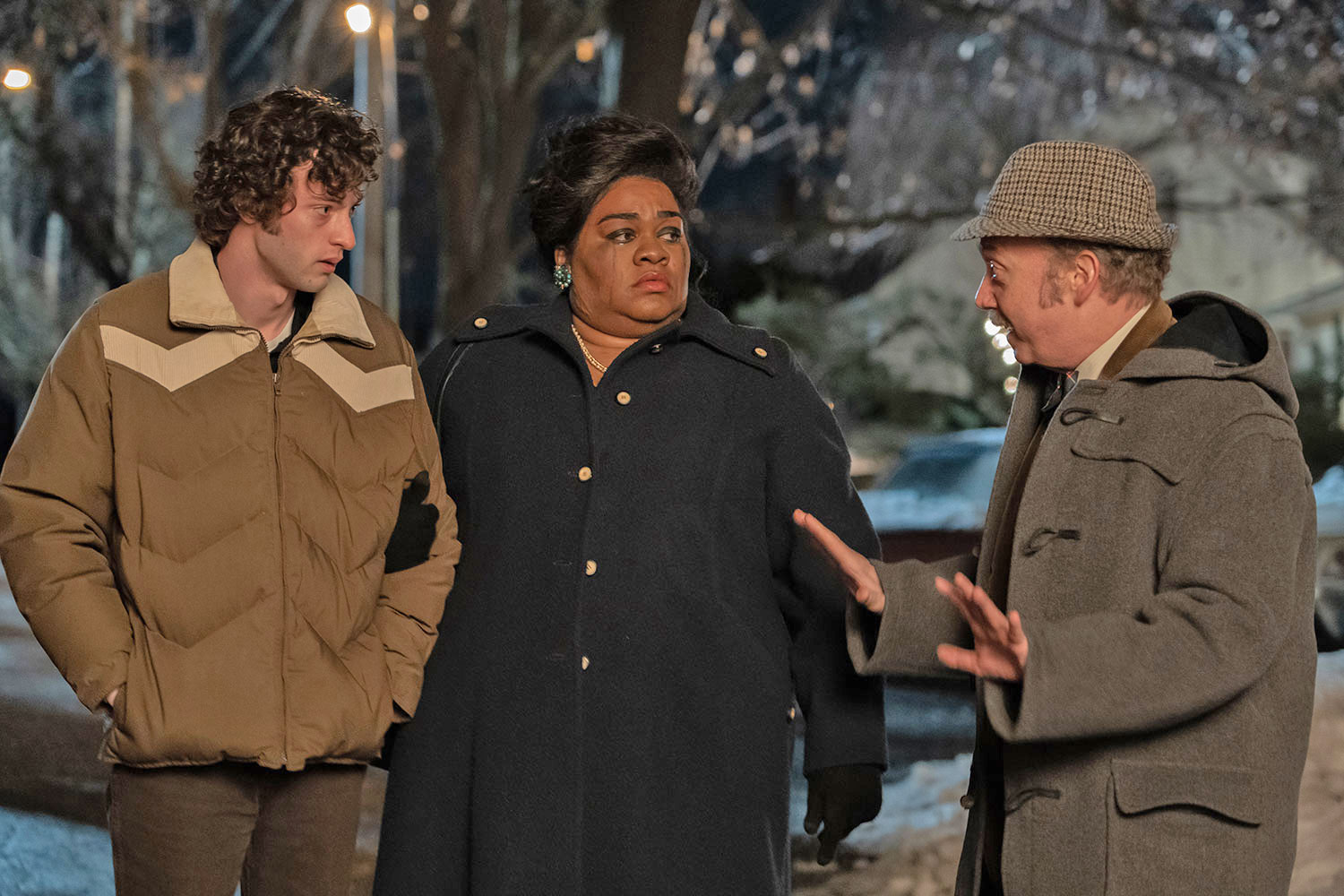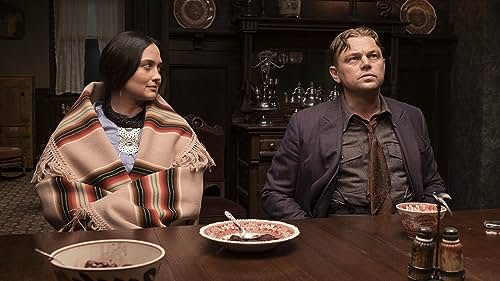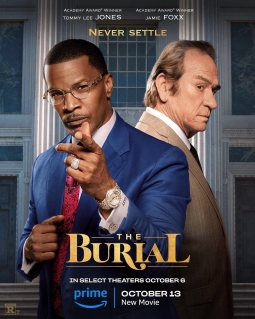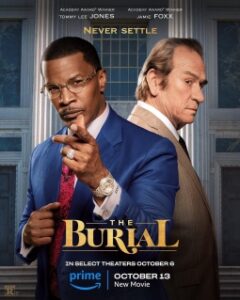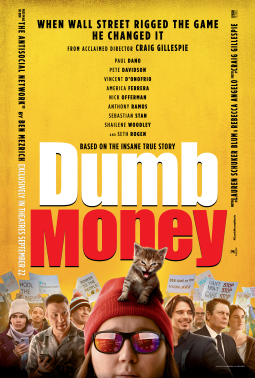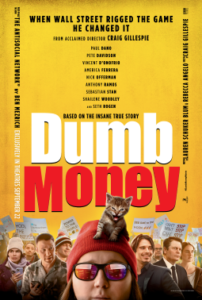The Holdovers
Posted on November 2, 2023 at 5:25 pm
A-| Lowest Recommended Age: | Mature High Schooler |
| MPAA Rating: | Rated R for language, some drug use and brief sexual material |
| Profanity: | Very strong language |
| Alcohol/ Drugs: | Drinking, smoking, marijuana |
| Violence/ Scariness: | Some peril, teen scuffles, references to wartime death, grief, and loss |
| Diversity Issues: | Economic and racial diversity a theme of the movie, mental illness |
| Date Released to Theaters: | November 3, 2023 |
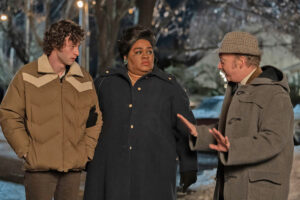
(l-r.) Dominic Sessa stars as Angus Tully, Da’Vine Joy Randolph as Mary Lamb and Paul Giamatti as Paul Hunham in director Alexander Payne’s THE HOLDOVERS, a Focus Features release.
Credit: Seacia Pavao / © 2023 FOCUS FEATURES LLC
The faculty members have the crucial pedigree of having gone to Barton. This, of course, inspires respect and courtesy from the students. No it doesn’t! The students barely respect their prestigious and wealthy parents, but even they rank higher than someone who is still at Barton, decades after graduation. Perhaps the faculty member held most in contempt is Paul Hunham (Paul Giamatti), who has three strikes against him. He looks and smells weird. He teaches a class on Ancient Greece, which the students find useless and monumentally boring. And he is incorruptible and brutally strict. Even his former student, now the school’s headmaster, is furious with him for refusing to give the son of a powerful and wealthy donor a better grade, costing him his college admission.
That is how Hunham gets stuck with staying at the school over winter break, overseeing the students whose parents cannot or will not let them come home. They’re called the holdovers. The students are miserable, especially when they learn that they all have to bunk together in the infirmary because the heat to the dorms has been shut off, and that Hunham has a rigorous schedule of study and exercise planned for them. Everyone else has gone home for the holidays except for Mary Lamb, the head chef, who will be cooking for them. She is in mourning for her son, recently killed in Vietnam. He was a Barton graduate who could not get a draft deferment like his classmates because they could not afford college tuition. And she is played by an exceptionally moving Da’Vine Joy Randolph, so good in “Dolomite Is My Name” and briefly glimpsed this month in “Rustin” as Mahaliah Jackson.
We’ve all heard about the best-laid plans going awry. And I’m sure we’ve all experienced that terrible plans tend to go awry, too. So before too long, the other holdovers have been whisked away, all that are left are Hunham, Mary, and one smart, rebellious, deeply grieving, and extremely angry student who would have been graduating if he had not been kicked out of three other schools. That is Angus Tully, played with exactly that mix of qualities by newcomer Dominic Sessa.
Director Alexander Payne likes to make movies about people who are extremely passionate about issues others do not take too seriously. In “Election,” it’s a high school election. Who can forget one of the great moments in movie history, when one student calls out the ones who care about it. And we all remember this film’s star, Paul Giamatti, getting way too passionate about his disdain for merlot. In “Nebraska,” a senior citizen is over-committed to the idea he has won a sweepstakes.
Here, the always-brilliant Giamatti gives one of the best performances of the year as a kind of tribute to the bitter boarding school classics teacher in “The Browning Version,” and something of a classics version of a Miniver Cheevy, the only way he can make any sense of his lonely, disappointed, unappreciated life is to wrap himself up in a notion of antiquity that is vastly more honorable or at least understandable than what he has. In his mind, every failed student his his “no, in thunder!” to the weak ambiguities and moral compromises and overall unfairness of the modern world. The students — and the other faculty — may be younger, more handsome, richer, more confident, more popular, and more privileged than he is, but Hunham can still feel superior about what he has decided matters more, like his fondness for the the Meditation of Marcus Aurelius.
Mary, Hunham, and Angus each in their own way stuck, have experiences, adventures, mistakes, confidences, and expanded understandings over the course of the holidays. Each scene is a small gem, the ensemble work is as good as it gets, the screenplay by David Hemingson is smart, funny, and touching, and the superb cinematography by Eigil Bryld captures the chilly landscape of the almost-deserted school and the warmth of some of the other locations. This is one of the best films of the year, with career best work by all involved.
Parents should know that this film has very strong language, some peril and injury, family conflicts, mental illness, loss and grief, drinking and drunkenness, smoking, and some drug use.
Family discussion: What should the teachers in charge of students left behind over the holidays do? What are the differences between the time period of the movie and today?
If you like this, try: “The Browning Version” and its remake — both good, but I prefer the original with Michael Redgrave

